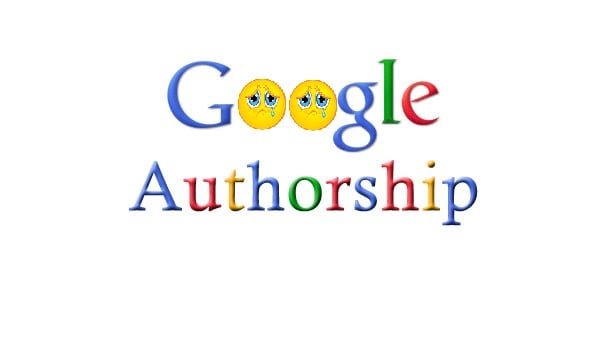 After three years of affecting the aesthetics of Google’s search results, sadly, authorship has come to an end. The announcement was made today by Google’s John Mueller in a Google+ post where he stated:
After three years of affecting the aesthetics of Google’s search results, sadly, authorship has come to an end. The announcement was made today by Google’s John Mueller in a Google+ post where he stated:
Unfortunately, we’ve also observed that this information isn’t as useful to our users as we’d hoped, and can even distract from those results. With this in mind, we’ve made the difficult decision to stop showing authorship in search results.
This is not entirely shocking since authorship has been on a steady decline since December 2013. Google had then made the decision to reduce the amount of authorship images shown in their SERPs. We here at AmsiveDigital noticed some images had disappeared completely as a result. Fast forward to June 2014 and Google made another decision related to this and that was to entirely remove authorship images from their SERPs. In a post, also by John Mueller, it was noted that:
We’ve been doing lots of work to clean up the visual design of our search results, in particular creating a better mobile experience and a more consistent design across devices. As a part of this, we’re simplifying the way authorship is shown in mobile and desktop search results, removing the profile photo and circle count.
These statements are slightly contradictory since Google originally said that authorship would be good for our results and there was evidence that showed it increased our CTR. What’s also puzzling is that Matt Cutts said that authorship was a good thing and could be used to fight spam by increasing search quality. If there is one thing certain about Google, and search, it’s that there is no certainty. SEO has many moving parts and is always changing.
What does this mean for Google+?
Sadly, there are a lot of bad vibes in the land of Google+. Back in April 2014, Vic Gundotra who had created Google+, left the company and the future of the social platform uncertain. Now that authorship has drawn its final breath, what is the allure of using the search giant’s social media site? I for one happen to love Google+ and hope that it continues to thrive in its current form.
What does this mean for the future of search?
Google in constantly evolving to bring better, faster, and more relevant spamless results based on our queries. Referencing Mueller’s post again from today he mentioned that we should be focusing on structured markup (such as schema.og). Could sites with structured data have a better change at appearing in Google’s new Knowledge Vault? Only time will tell what new factors will affect the SERPs and the new techniques we can employ to achieve them. We will continue to watch this and report on any new developments that arise.





